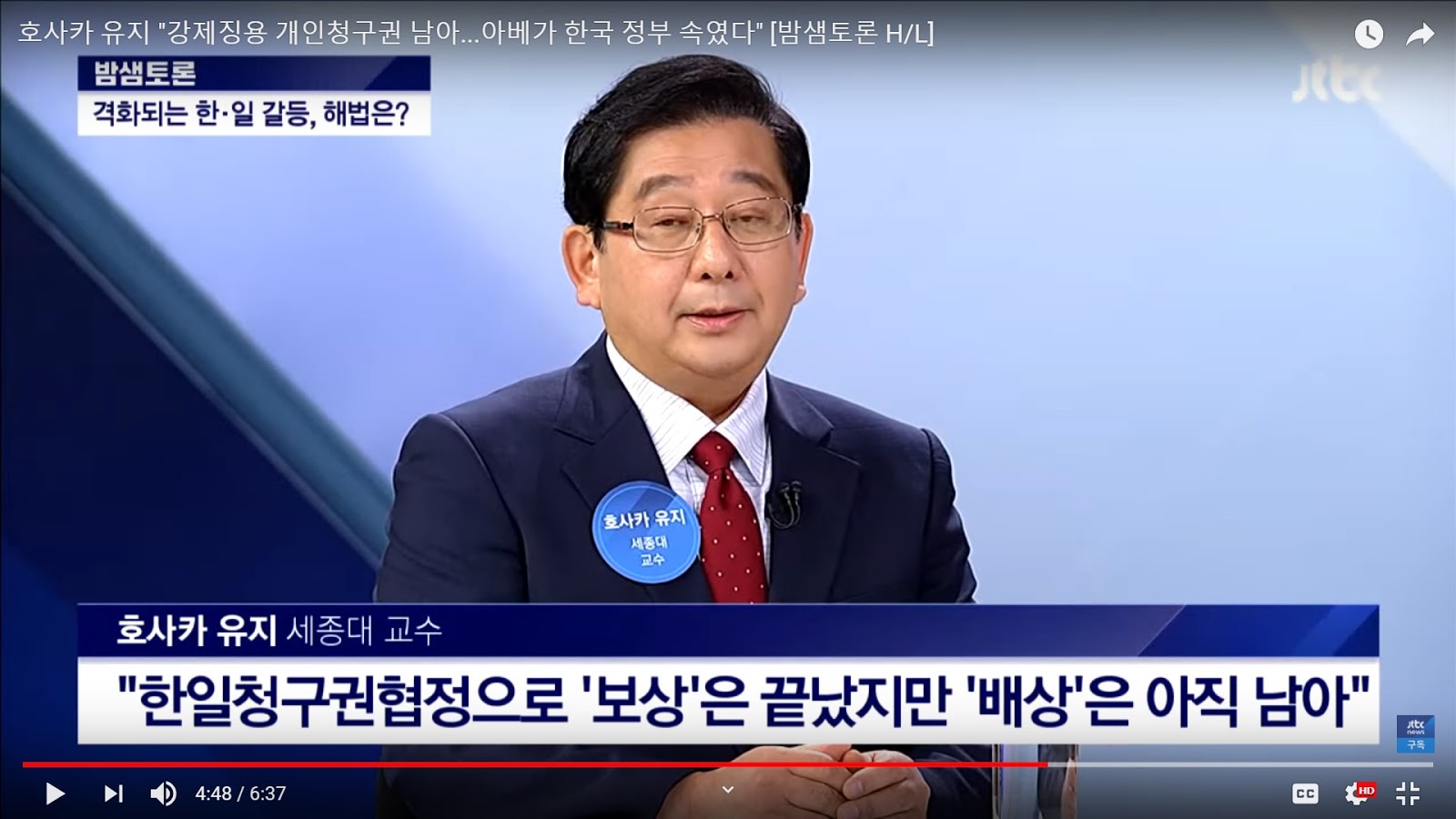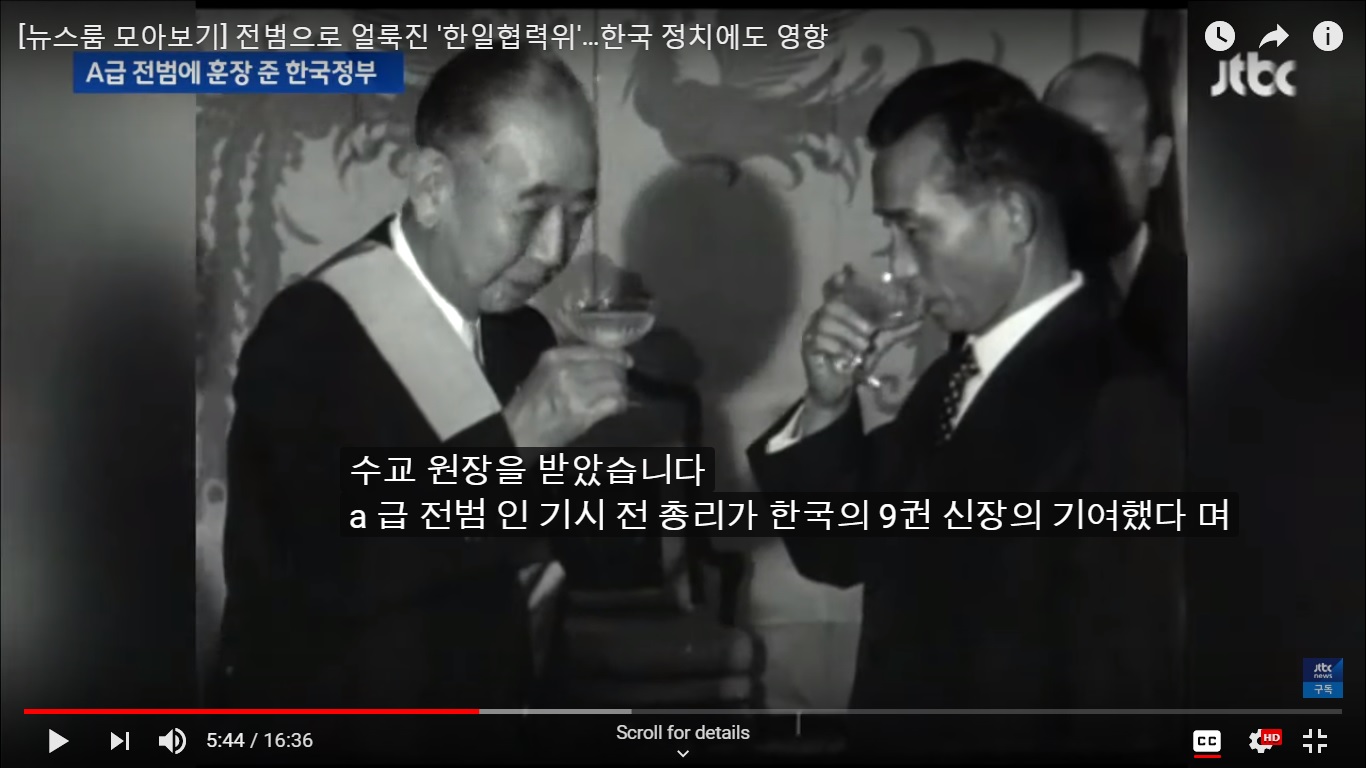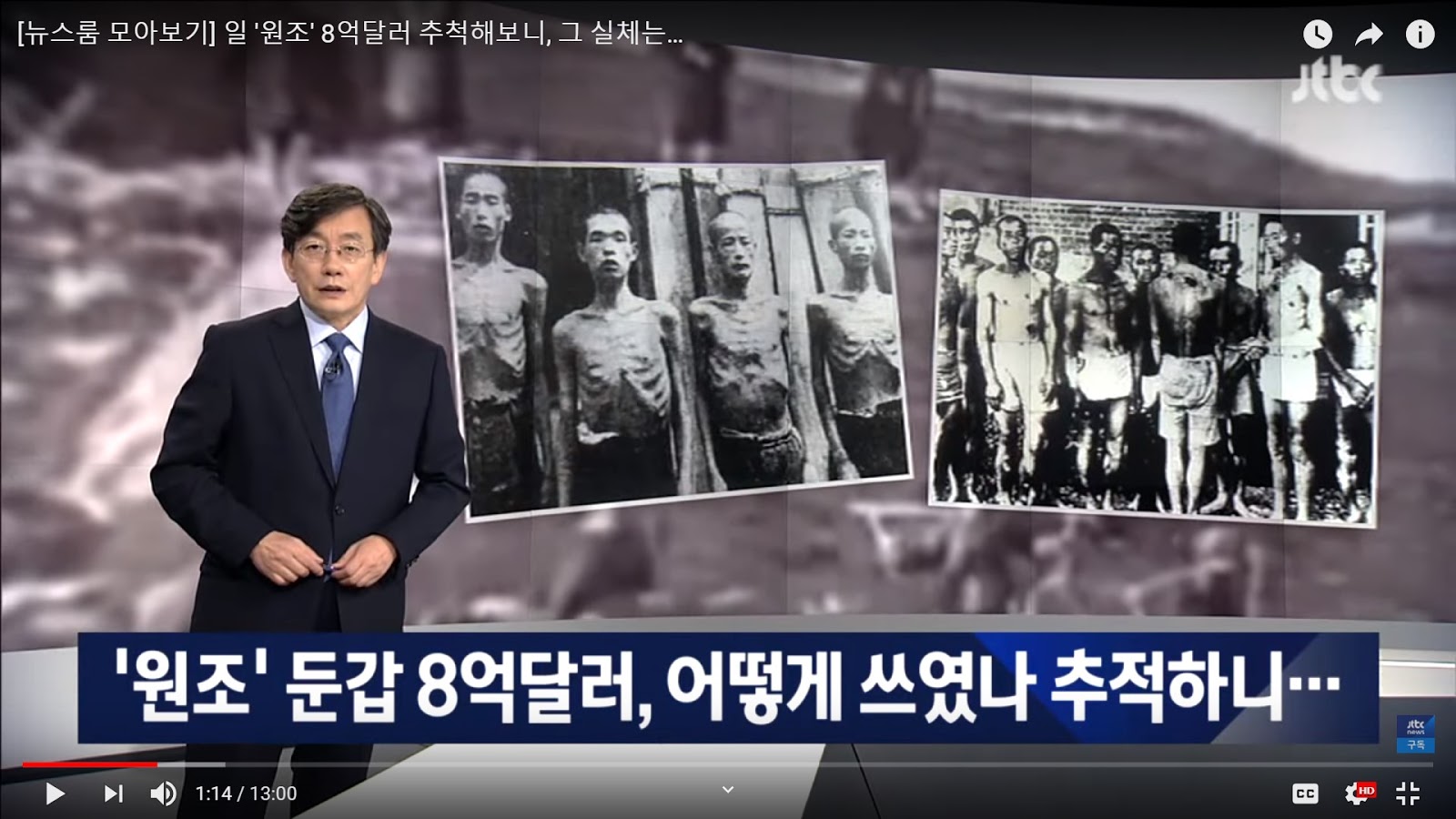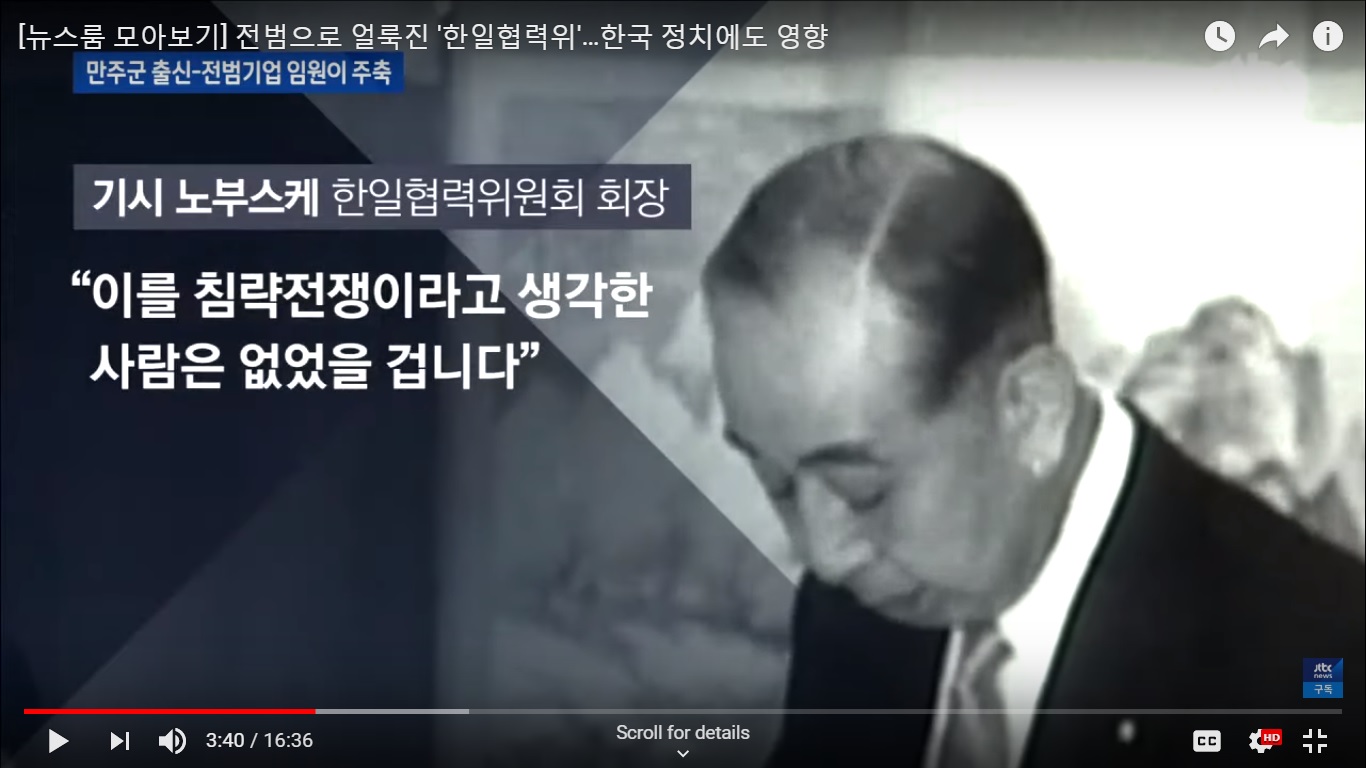soryang
soryang's JournalThis Is What a World Without American Leadership Looks Like
This Is What a World Without American Leadership Looks Like
The escalating feud between U.S. allies Japan and South Korea is what happens when the president ignores his responsibilities.
By FRED KAPLAN
AUG 23, 201911:19 AM
The issues between the two countries have been the same all along. What’s different, this time around, is that President Donald Trump—unlike all previous presidents—has had, until very recently, no interest in stepping in.
“How many things do I have to get involved in?” he asked last month, in a tone of exasperation, when he first heard requests to help quell the tensions. The implication was that he didn’t much want to get involved in this one. And so the tensions spiraled.
Those issues between the two countries amount to a toxic brew of nationalist resentments dating back more than a century. They ought to be a cautionary tale in this era when our own country is repackaging old tribal disputes into seething partisan politics.
https://slate.com/news-and-politics/2019/08/south-korea-japan-feud-history-comfort-women-trump.html
White House indifference to the South Korea - Japan dispute is part of the transactional/coercive technique of this administration. The white house loathes the progressive Moon Jae In democratic party government of South Korea. The US defense interests want to increase South Korean payments to the US for defense costs, increase ROK commitments to out of area Indo-Pacific operations; deploy intermediate range ballistic missiles and more THAAD launchers in South Korea; and have South Korea buy into an integrated Aegis air defense system in the region with US and Japanese forces. Unlikely to get much cooperation on these issues from the progressive Moon government, weakening and destabilizing the Moon administration in tacit alliance with the right wing "make Japan great again" Abe government is the chosen path.
South Korea: Japanese Imperialism- Then and Now
Rhee's successor, was the military dictator Park Chung Hee. Park had been a former Japanese Imperial Army officer and spy for the Japanese colonial administration of Manchukuo before the liberation. Shinzo Abe's grandfather Kishi Nobusuke, had been a major figure in the governance of Manchukuo, who directed slave labor operations for economic exploitation by Japanese interests. The details of Park's activities as a Japanese trained imperial officer during this period of collaboration are not clear. His history shows he switched national allegiances and political stripes more than once, to advance himself. His character reminds one of the deadly and treacherous collaborator, "goblin," depicted in the South Korean historical drama, Noktu Flower, concerning the earlier Tonghak period. The characters formed necessarily a product of their respective tumultuous and brutal times.

(Source- JTBC News 8.6) Prime Minister Abe: President Park Geun Hye's father, President Park Chung Hee, was a close friend of my grandfather. It would not be an exaggeration to say that President Park Chung Hee was the friendliest president to Japan. Title of program is war crimes stained South Korea- Japan Cooperation Committee influence on South Korean politics; Arising out of the Manchurian Army- Key war crimes enterprise board executive- pivotal role.
Lately, it is said that Abe's family legacy as the political heir of Kishi Nobusuke is not the root of the current Japanese Korean dispute. This contention couldn't be more wrong. The relationship is pivotal to Japanese corporations involved in the colonial and wartime exploitation of Korea and their later central influence over Japanese- South Korean relations. After Kishi finished his term as prime minister of post war Japan, he played a key role in the negotiations leading to the 1965 Agreement with the Park regime "normalizing" relations with South Korea. This was not an arms length agreement but rather Kishi as the defacto representative of Japanese industrial interests in Korea, the old imperial order, negotiating with Manchukuo's former military agent for Japanese interests in the conquered territories, namely Park Chung Hee. Abe coyly admitted at a meeting of the Japanese Korean Cooperation Committee in 2013, the same organization that Kisi headed 50 years earlier when it first convened in 1963, that Kisi and Park were "close friends."
The 1965 agreement drafted by the committee didn't settle all individual Korean claims against Japanese corporations. The legal basis for this view was expressed on July 30, on JTBC by Hosaka Fuji, professor at Sejong University. He describes the issue in terms of the the difference between claims based on contract and property principles for indemnity, which were settled by the agreement from those individual claims for injury compensation which were not. He asserted that the 1965 Agreement did not extinguish private personal injury claims based upon criminal behavior by Japanese during the colonial and wartime periods. Other Japanese and Korean experts have expressed this same view. The professor went on to describe the position of the Abe government as a fraud on the international community as the legal principles had previously been recognized by the Japanese government.

(Source-JTBC News 7.30) Hosaka Fuji, Sejong University professor: The South Korea- Japan Claims Settlement Agreement ended claims for indemnity. Claims for injury compensation still remain.
The Japanese contention today is that such claims aren't lawful under "international law" because of the 1965 Agreement. Japanese Ministry of Foreign Affairs documents contemporaneous to the agreement show this not to be the case:
The text of the 1965 agreement says in Article 2, “The High Contracting Parties confirm that the issues concerning property, rights, and interests of the two High Contracting Parties and their peoples (including juridical persons) and the claims between the High Contracting Parties and between their peoples, including those stipulated in Article IV(a) of the Peace Agreement with Japan signed at the city of San Francisco on September 8, 1951, have been settled completely and finalized.” The Korean government received through the agreement $300 million in grants, $200 million in loans and $300 million in private loans. Regarding the interpretation of Article 2, the Japanese government maintained the attitude through the 1990s that the individual right to recourse still existed. Since then, Tokyo has been denying that stance. Recently, Japanese courts have also been dismissing claims for damages from victims, arguing that the agreement settled all claims.*
*Japanese document confirms individual right to recourse in spite of Korea-Japan Agreement of 1965, March 15, 2010
http://english.hani.co.kr/arti/english_edition/e_international/410123.html
Also:
The Japanese Foreign Ministry prepared an internal document in 1965 saying, “Though a treaty was signed, an individual’s right to seek damages is a separate issue.”
...The document was titled “The legal meaning of the people’s rights and the waiver of the rights to seek damages under the peace treaty.”
“When an individual’s property rights (private rights) in a country is infringed upon by another country, the former country holds the right to seek damages from the latter country, but this right is legally separate from the individual’s own right to seek damages,” the document said.*
*Individual Claims Not Covered by 1965 Treaty: Documents
Posted March. 15, 2010 09:29,
http://www.donga.com/en/List/article/all/20100315/264613/1/Individual-Claims-Not-Covered-by-1965-Treaty-Documents

(Source- JTBC News 8.6) Class A war criminal awarded by South Korean government. In 1970, Kisi was awarded the top national award in diplomacy by South Korean dictator Park Chung Hee, the Distinguished Order of Diplomatic Service. Park was a former graduate of Japanese military schools and a former military officer and agent of the Japanese Imperial Army in Manchukuo.
Most of the money in the "settlement" were loans at relatively high rates of interest. Most of what was characterized as "aid" and "approaching settlement for claims," was not delivered in funds but rather goods in kind and services in kind from the very corporations who had committed the slave labor crimes during the colonial and wartime period. The most significant portion of the settlement went to Pohang Steel. It was not settlement for injuries due to slave labor war crimes against Koreans. According to the JTBC report, arrangements for Korean projects built by Japanese corporations with loans were accompanied by bribes, kickbacks and other corruption. A JTBC expert commentator said that the primary contracts went to Japanese corporations and that prices for goods and services were over charged. This was the so called "black fog." The committee operated primarily as a private organization run through personal connections and there was little transparency, supervision or accounting for their expenditures.

(Source- JTBC News 8.5) "Aid," the disappearing 800 million dollars, tracking how it was used.
The tainted history of Park Chung Hee, is camouflaged by the myth about his status as father of the economic miracle of South Korea. Other administrations appeared to have obscured the record of collaboration and toadying to Japanese interests out of political expediency. The reactionary right wing parties that made Park's daughter president after South Korea came out into the daylight of legitimate representative government had to conceal the pro-Japanese collaboration that had brought her family power and political influence. When the Korean courts began adjudication of litigation against Japanese corporations responsible for slave labor war crimes, she obligingly, at the request of the Japanese government led by Abe, illegally interfered in the administration of justice by the constitutionally separate judicial branch. When she was removed from power for such practices and other corruption, the proper and lawful adjudication of the slave labor claims went forward. So the "unjustified" claims against Japan aren't the result of Moon Jae In, they are the result of the rule of law permitted to go forward.
As Abe comes forward with disingenuous arguments, claiming the 1965 Agreement forecloses such claims by individual South Koreans against war crime legacy Japanese corporations, the US pretends not to understand the deeply rooted nature of the problem. William Underwood has documented the long history of evasion, obstruction, collusion and denial by the offending Japanese corporations and the Japanese government in precluding these claims. The rift was caused by the dictators in South Korea the US wholeheartedly supported, their successor administrations, and the US supported LDP party in Japan, founded, in part, by war criminal and Nazi sympathizer, Kishi Nobusuke, with the support of the CIA. It is clear from the history of the agreement that private claims for compensation due to forced labor war crimes are not foreclosed by the agreement as a matter of fact.* The agreement did not settle those claims but forestalled the issue indefinitely as a practical matter by entering an agreement with a compliant pro-Japanese dictator in South Korea.
*[Fact check] S. Korean individuals have the right to claim compensation from Japan
Posted on : Aug.7,2019 16:57 KST Modified on : Aug.7,2019 16:57 KST
http://english.hani.co.kr/arti/english_edition/e_international/904882.html

(Source- JTBC News 8.6) Kishi Nobusuke, South Korea- Japan Cooperation Committee President (1963): "No person here thinks of this as a war of invasion." This was the revisionist mythology of Meiji imperialists and advocates of the Greater East Asian Co-Prosperity Sphere.
The US military posture in East Asia would be reduced to something similar to its pre-WWII status without Japan's support and military infrastructure. That is inconsistent with the so called "pivot to Asia" and the looming US disputes with China. Abe knows this and is taking an aggressive, if not outright belligerent stance, in attempt to return South Korea to a quisling status, as it was under the Korean right wing dictators and subsequent transitional administrations. For this reason the US pretends not to know why its allies can't get along, or the very serious flaws at the heart of the US alliance system in Asia, that were present at its birth, but actively concealed from public view. At this time in history, when democracy has seen the light of day of in South Korea, these flaws are not just historical grievances but relate to the very essence of what kind of leader Abe really is, and what kind of party the LDP is. The potential dangers of yielding to Abe-LDP initiatives, such as removing constitutional limits on Japanese military operations, and conducting a devastating trade war with South Korea, rival those of American complicity in Japanese imperialism at the dawn of the 20th Century.
Profile Information
Member since: Sat Mar 14, 2009, 09:45 PMNumber of posts: 3,299